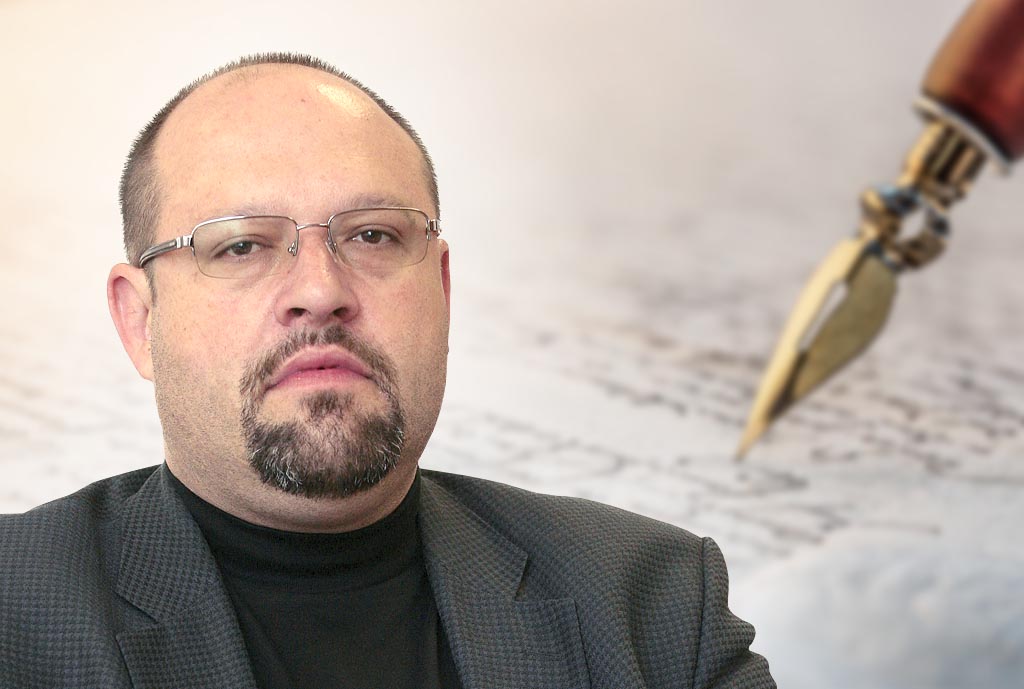By: Dr Matevž Tomšič
Intense fighting has been ongoing in the Middle East for more than a year. It began on October 7th of last year with an incursion by members of the Palestinian terrorist organisation Hamas into Israeli territory, resulting in the worst massacre of Jews since the end of World War II.
This was followed, as expected, by a fierce response from Israel with mass bombings and a military intervention in Gaza, from where Hamas forces had attacked. This led to disastrous consequences for the Palestinian population of this enclave, as their casualties number in the tens of thousands, and a large part of the buildings and infrastructure has been destroyed. Recently, the fighting has also spread to Lebanon, home to the terrorist organisation Hezbollah, which has been battling Israel for decades, and in the past year, it has intensified shelling of the northern part of that country, prompting an Israeli military response there as well. Iran also plays an important role in all of this, as it is a mentor and sponsor of Islamic extremists and terrorists in the region.
What we are witnessing now is not the first armed conflict in this part of the world. The history of Israeli-Arab wars is long, having started with the creation of the state of Israel in 1948. And as usual, global power centres that support one side or the other also play their role in this.
There is also a long history of highly biased treatment of these conflicts. The country of which Slovenia was a part before independence was firmly on the side of the Arabs. This was a consequence of the non-aligned policy, as many Arab countries were members of this movement (which Yugoslavia co-founded), while Israel was seen as part of the ‘imperialist’ West. Even after the creation of an independent Slovenian state, this ‘non-aligned’ view, which is markedly negative towards the Jewish state, has persisted in much of Slovenian politics and the public.
The height of anti-Israel sentiment was reached during the current government’s term. Despite a declared condemnation of Hamas’ crimes, the recognition of Palestine as an independent state (although it does not even possess the basic attributes of one) effectively placed Slovenia on its side. Which political force enjoys the most support among Palestinians? Hamas. And not despite its terrorist activities, but precisely because of them. It is not difficult to predict that if an independent Palestine existed, Hamas would win elections there.
On the anniversary of the renewed fighting in the Middle East, we witnessed a flood of pretence, manipulation, and outright lies about who is responsible for it. The standard-bearer of this behaviour was none other than Prime Minister Robert Golob. First, in his burlesque appearance at the United Nations, where he banged his hand on the lectern, he called on Israeli Prime Minister Benjamin Netanyahu to bring the hostages home and end the war (as if the hostages were not captives of Hamas and could be simply retrieved, as if they were on a trip). Then, on the anniversary of Hamas’ attack, he once again placed most of the blame on Israel. The mainstream media followed his ‘line’, with the main role being played by the multimedia portal of the ‘depoliticised’ national radio and television. In a report on the attack, the opening sentence already contained an obvious lie, claiming that there had been an ‘incursion from occupied Gaza’. Israel withdrew from there in 2005. A year later, Hamas won the elections and has since held all the power in its hands. This area was transformed into a terrorist enclave with the aim of fighting Israel until its complete destruction. As such, Hamas is the main culprit for the suffering of its people. And if it ruled all of Palestine, it would also become a hotbed of terrorism and Islamic extremism. How could such a state then contribute to peace in the Middle East?

